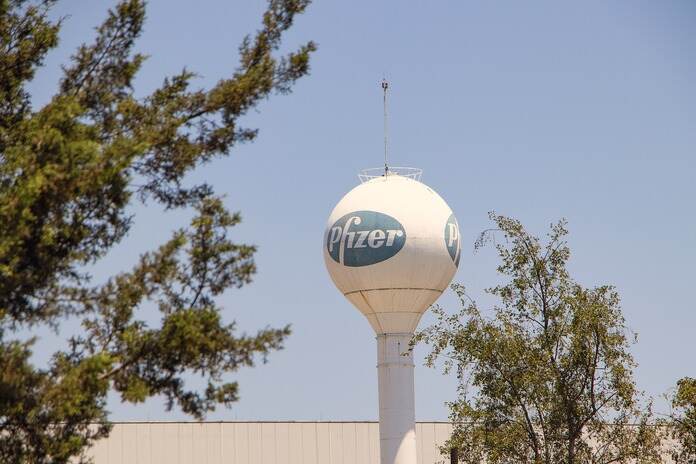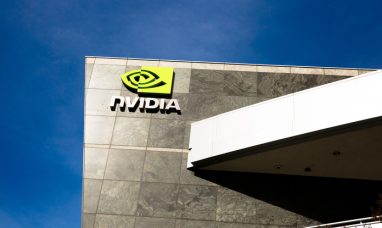Pfizer Stock (NYSE:PFE)
Pfizer (NYSE:PFE) made a significant investment in Seagen (NASDAQ:SGEN) on Monday by announcing that it will pay $229 per share in cash as part of a transaction that would put the worth of the biotechnology business at $43 billion.
On Friday, shares of Seagen (NASDAQ:SGEN) finished trading at $172.61 each. The Wall Street Journal claimed in the summer that Merck & Co Inc (NYSE:MRK) was in negotiations to acquire the company for “above $200 a share.” The cancer-focused biotech company has been a popular acquisition target.
According to Bloomberg, the failure to reach an agreement on pricing was the reason why that transaction did not go through. On the other hand, Pfizer seems to have been able to accommodate Seagen’s requirements.
Pfizer, a pharmaceutical corporation, made the announcement that it intended to acquire the biotechnology business Seagen in November 2021, and the transaction was estimated to be worth $43 billion. It is anticipated that the transaction will be finalized by the end of 2022, provided that it receives the necessary governmental clearances.
The offer made by Pfizer is predicated on the company’s belief that Seagen’s annual sales will reach $10 billion by the year 2030. On Monday, a number of commentators expressed their belief that this anticipation may be overly optimistic. According to FactSet, the longest-term prediction that is currently available, Wall Street analysts anticipate that Seagen will reach revenues of $7.7 billion in the year 2028.
“This figure seems fairly aggressive based on where the numbers stand today, but management must be pretty comfortable with their internal projections and other assumptions if willing to pony up this much for the asset,” Jared Holz, a healthcare equity strategist at Mizuho, wrote in an email to investors on Monday morning. “If willing to pony up this much for the asset, management must be pretty comfortable with their internal projections and other assumptions.”
If Seagen is successful in reaching its goal of $10 billion, it will assist Pfizer in reaching its goal of $25 billion in revenue from new business development by the year 2030. Pfizer has set this goal in an effort to make up for the $17 billion in annual revenue it anticipates losing due to the expiration of patents by the year 2030.
If this purchase goes through, Pfizer estimates that it will have less than $5 billion left to reach its annual revenue goal of $25 billion, which includes the $10 billion it will receive from Seagen.
Pfizer’s chief business innovation officer Aamir Malik was on an investor call on Monday morning when he was explicitly questioned about the company’s above-consensus projections for Seagen revenue. In response, Malik stated that Pfizer anticipates an upside in the company’s pipeline.
According to Malik, “Seagen has an exceptionally rich pipeline of assets that we easily envision producing $2 billion of risk-adjusted revenue in 2030 and beyond.”
Pfizer stock was up 0.2% as of the opening bell on Monday, despite the fact that the S&P 500 was down 1%.
Investors have shown a lot of interest in Seagen since it is a leader in the field of antibody-drug conjugates, often known as ADCs, which is a category of cancer medicines. As of last Friday, the share price had increased by 25% over the course of the previous year.
Even with the 15.3% gain on Monday morning, Seagen’s share prices were still much lower than the purchase price of $229. This could be a reflection of concerns about the scrutiny of the move by the Federal Trade Commission, which has been giving recent months’ healthcare deals a critical look. In recent months, the FTC has been looking closely at healthcare deals.
One potential regulatory worry could arise from the company’s overlapping medicines for first-line bladder cancer. Pfizer’s Bavencio has been approved by the Food and Drug Administration (FDA) for use in the indication, whereas Seagen’s Padcev is now waiting for a decision from the agency. However, several medications that are licensed for use in the indication were mentioned by Evercore ISI analyst Josh Schimmer in a research note that was published on Monday. According to Schimmer, preventing this purchase from going through would “create a new precedent in biopharma, which would ripple across the industry.”
Pfizer general counsel Doug Lankler stated during Monday’s conference call that the company anticipates the purchase would be subject to a thorough investigation by regulatory authorities. According to Lankler, “Our technology and strategies for combating cancer are very complementary to one another.” “And we think that regulators are going to be able to appreciate the advantage of integrating Seagen’s ADC technology and knowledge, with Pfizer’s broader experience with various sorts of oncology, which will be both beneficial to patients and beneficial to competition,”
Late in February, The Wall Street Journal published an article stating that Pfizer (NYSE:PFE) was in early talks to purchase Seagen. This news caused the shares of Seagen to skyrocket. Given the previous events with Merck, a number of analysts expressed their opinion in writing at the time that they believed it was unlikely that the deal would be finalized.
The transaction was eventually finalized in the midst of a turbulent weekend for the biotechnology industry. On Monday, Sanofi (NASDAQ:SNY) announced a $2.9 billion deal to acquire the biotech company Provention Bio (NASDAQ:PRVB), and at the same time, anxieties surrounded the potential failure of Silicon Valley Bank, which has particularly close ties to the biotechnology industry.
According to a statement released by Pfizer on Monday, CEO Albert Bourla said that the company is “deploying its financial resources to progress the war against cancer,” which is a leading cause of mortality around the world and has a substantial influence on public health.
Pfizer has been making a series of acquisitions recently, the most recent of which is this one. The company has been using the windfall it received from the sale of Covid-19 to bolster its revenue picture as we approach the end of this decade when several key Pfizer drugs are anticipated to lose their exclusivity. Other noteworthy purchases include the transaction that was worth $6.7 billion for Arena Therapeutics and the transaction that was worth $11.6 billion for Biohaven.
Pfizer’s purchase of Seagen would be its largest acquisition since the company paid $68 billion in 2009 to acquire the pharmaceutical manufacturer Wyeth. Pfizer’s aim to increase its range of oncology treatments includes the acquisition of Seagen, which was done as part of that strategy. The company intends to increase its position in the rapidly expanding oncology sector by leveraging the knowledge that Seagen possesses in the development of tailored cancer medicines. Pfizer will also be able to increase the number of pharmaceuticals it has in the development pipeline as well as gain access to Seagen’s manufacturing capabilities as a result of the purchase.
Pfizer’s Chief Financial Officer David Denton stated on the investor call that “if you pro forma this out over the longer run, the return at these price levels from a shareholder viewpoint is actually quite appealing,” in reference to the company’s stock price. “We are quite content with where we are, and we anticipate that this acquisition will provide significant value for us in terms of returns over the course of the long run.”
Pfizer has stated that it will pay for the acquisition of Seagen with $31 billion in additional long-term debt, in addition to the cash it already has on hand and some short-term financing.
During the investor call that took place on Monday morning, Bourla stated that Seagen will continue to operate out of its existing locations in Seattle and San Francisco.
Largest Deal in the Pharmaceutical Industry
One of the most significant transactions to have taken place in the pharmaceutical sector in recent times is the acquisition of Seagen. Given that cancer is one of the top causes of mortality around the globe, it is not surprising that large pharmaceutical corporations are becoming increasingly interested in oncology medications. Increased revenue, enhanced research and development capacity, and improved patient outcomes are among the main benefits that are anticipated to result from the transaction for both Pfizer and Seagen.
Pfizer’s overall goal is to improve its position in the fiercely competitive oncology sector and drive future growth, and the acquisition of Seagen is a crucial strategic move that the company has taken to achieve these goals. It is anticipated that the transaction would be profitable for both businesses and will have a beneficial effect on the healthcare industry as a whole.
Featured Image: Pixabay @ mike_ramirez_mx















